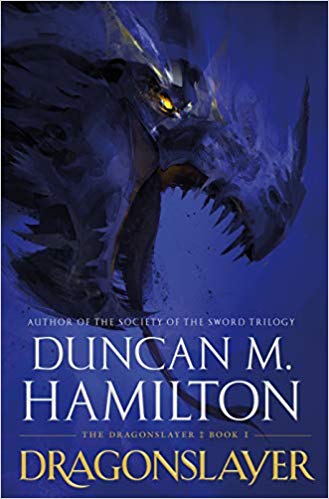 Dragonslayer by Duncan M. Hamilton
Dragonslayer by Duncan M. Hamilton Format: audiobook, eARC
Source: purchased from Audible, supplied by publisher via NetGalley
Formats available: hardcover, paperback, ebook, audiobook
Genres: epic fantasy, fantasy, sword and sorcery
Series: Dragonslayer #1
Pages: 304
Published by Tor Books on July 2, 2019
Purchasing Info: Author's Website, Publisher's Website, Amazon, Barnes & Noble, Kobo, Bookshop.org
Goodreads
Author of one of BuzzFeed 's Greatest Fantasy Books of 2013
In his magnificent, heroic, adventure fantasy, Dragonslayer, Duncan M. Hamilton debuts the first book in a fast-moving trilogy: a dangerous tale of lost magics, unlikely heroes, and reawakened dragons.
Once a member of the King's personal guard, Guillot dal Villevauvais spends most days drinking and mourning his wife and child. He’s astonished—and wary—when the Prince Bishop orders him to find and destroy a dragon. He and the Prince Bishop have never exactly been friends and Gill left the capital in disgrace five years ago. So why him? And, more importantly, how is there a dragon to fight when the beasts were hunted to extinction centuries ago by the ancient Chevaliers of the Silver Circle?
On the way to the capitol city, Gill rescues Solène, a young barmaid, who is about to be burned as a witch. He believes her innocent…but she soon proves that she has plenty of raw, untrained power, a problem in this land, where magic is forbidden. Yet the Prince Bishop believes magic will be the key to both destroying the dragon and replacingthe young, untried King he pretends to serve with a more pliable figurehead. Between Gill’s rusty swordsmanship and Solene’s unstable magic, what could go wrong?
My Review:
Dragonslayer turned out to be surprisingly – and epically – marvelous. I’m saying this because I picked up the ARC last year and it got buried under the weight of the towering TBR pile. I always meant to get to it, but just didn’t quite. Then I got the audiobook last month. Audible was having a sale and I got the first two books in the series for cheap. Or cheaper anyway. I’ve discovered that epic fantasy and SF work really well in audio – it’s easy to get caught up in the action and forget I’m walking a treadmill or stuck in traffic.
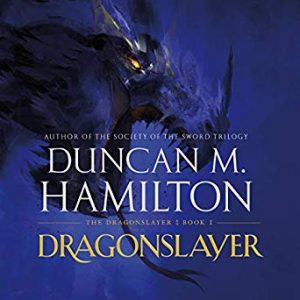 So when I bailed on an audio I just couldn’t tolerate, I remembered I had Dragonslayer. And that, surprising for an epic fantasy, it was only about 10ish hours long. That’s amazeballs. For an epic fantasy that truly is epic in scope, the series as a whole is blissfully NOT epic in length. The entire trilogy clocks in at just a shade over 900 pages, or just a hair over 30 hours in audio. Most epic fantasy in audio hovers around the 24 hour mark.
So when I bailed on an audio I just couldn’t tolerate, I remembered I had Dragonslayer. And that, surprising for an epic fantasy, it was only about 10ish hours long. That’s amazeballs. For an epic fantasy that truly is epic in scope, the series as a whole is blissfully NOT epic in length. The entire trilogy clocks in at just a shade over 900 pages, or just a hair over 30 hours in audio. Most epic fantasy in audio hovers around the 24 hour mark.
Dragonslayer is proof positive, very positive, that an epic fantasy can be told without turning into a tall pile of many thousand page doorstops. So if you know someone who is interested in epic fantasy but daunted by the length, Dragonslayer is terrific.
Part of what made it so good, at least from my perspective, is that it didn’t turn out to be any of the things I thought it was going to be at the beginning. Except that it claims to be epic fantasy, and it certainly is that, albeit of the sword and sorcery variety – something that we don’t see nearly enough of these days.
It all begins with Gill, technically Guillot dal Villerauvais. Gill is the drunken has-been who used to be the best swordsman in the kingdom. Now he’s the town drunk in the town where he’s supposed to be seigneur, the local squire.
We get the impression that he’s old and washed-up. That he’s pissed away his skill and his glory. But we think he’s Falstaff, a fat buffoon, when he’s really more like Cazaril in The Curse of Chalion. He used to be a hero. It’s both a pain and a purpose when he discovers that he’s STILL the hero, even if he doesn’t want to be, or feels that he’s no longer remotely capable of being.
He’s also not half so old as his world-weary voice (expertly acted by Simon Vance in the audio) makes him appear to be. Discovering late in the story that Gill is, at most, 40 years old is a bit of a shock. Gill is a heartbroken, heartbreaking lesson in what happens to a person when they realize that all their dreams are behind them.
The classic story about dragonslaying usually features the dragon as a rampaging beast out to slay all it encounters, whether for eating or just for the joy of slaughter. Here we have a thinking creature, woken from a long slumber by a troupe of pillaging humans intent on ransacking his cave in search of magical treasure. The dragon in this story may be the force that starts the action, but he’s not, even in the worst of his depredations, the villain of the piece.
That place is reserved for the Prince-Bishop Amaury, the power behind the Mirabayan throne and at the head of the newly formed – and illegally magical – Order of the Golden Spur, whose purpose is to hunt out magic and turn it to their own use. Or rather, to Amaury’s own use.
It’s been said that people whose titles are longer than their names are always complete arseholes. That’s certainly true in Amaury’s case. He also seems to be an object lesson about power corrupting and absolute power corrupting absolutely.
Not that he has ABSOLUTE power – at least not yet. But he’s working on it.
Amaury believes that Gill stands in his way. Because Gill has always stood in his way – at least according to Amaury. This time, he’s going to get what he wants out of Gill and then Gill is going to get what’s coming to him.
Unless, of course, Gill manages to stand in his way – again. If Gill can manage to stand at all.
Escape Rating A+: There is so much going on in this book, and all of it is fascinating. Or at least it was to me. This was one where I got so into it I started switching back and forth between the audio and the ebook. Because I just wasn’t listening fast enough – but the reading was so very good.
There are reasons why narrator Simon Vance is in the Narrator Hall of Fame, and plenty of hours of those reasons are in Dragonslayer.
There were so many elements to this story, and the more I think about it the more I believe I’ve found – or at least seen glimpses of.
While the biggest part of the story wraps around Gill’s quest to pull himself back together, slay the dragon and avenge the people it’s killed, his is not the only story and he’s not the only hero in this tale.
Solène, the young mage, has her own story to tell, and her own journey to reach her destiny. It just so happens that her journey and Gill’s keep intersecting – from the beginning when he saves her from burning at the stake, to the end of this installment where she saves him from an assassin. In between, while he takes the direct path to the dragon, Solene takes herself to learn magic, only to be forced to choose between a place she can be safe – and the right thing to do.
One refreshing element of the story is that while Gill and Solène come to rely on each other and care about each other, it’s a relationship that does not fall into any neat pigeonholes. Gill doesn’t have himself together enough to feel capable of the kind of mentorship that even an ersatz parental relationship would require, and there is blissfully NO HINT WHATSOEVER that this will ever turn romantic. It’s lovely to show that not all close relationships, particularly close opposite sex relationships, HAVE to end in romance.
 Last but not least, while this book was published in mid-2019 and probably finished sometime the previous year, finishing it today showed some striking parallels between the way that towns and villages were emptying out in hopes of getting away from the dragon and the response to the current COVID-19 pandemic in real life. In both cases, public spaces are empty and people are fearful. A virus is even harder to outrun than a flying, fire-breathing dragon.
Last but not least, while this book was published in mid-2019 and probably finished sometime the previous year, finishing it today showed some striking parallels between the way that towns and villages were emptying out in hopes of getting away from the dragon and the response to the current COVID-19 pandemic in real life. In both cases, public spaces are empty and people are fearful. A virus is even harder to outrun than a flying, fire-breathing dragon.
The hints about the past of this world, the long ago time of great magic, great mages and even greater dragons give tantalizing clues to the journey that Gill and Solene will have to undertake in the remaining books of the trilogy, Knight of the Silver Circle and Servant of the Crown.
I’ll be listening to Knight of the Silver Circle in the morning, possibly as you are reading this review. I can’t wait!

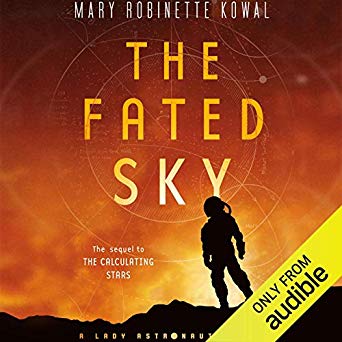 The Fated Sky by
The Fated Sky by 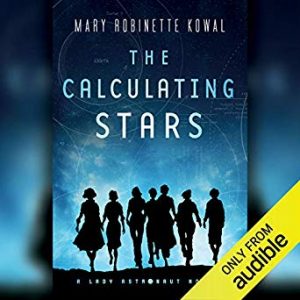 I am also in tears, just as I was at the end of
I am also in tears, just as I was at the end of 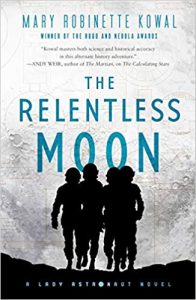 Just as with The Calculating Stars, I’m trying to keep from squeeing and I’m failing. Happily and miserably.
Just as with The Calculating Stars, I’m trying to keep from squeeing and I’m failing. Happily and miserably.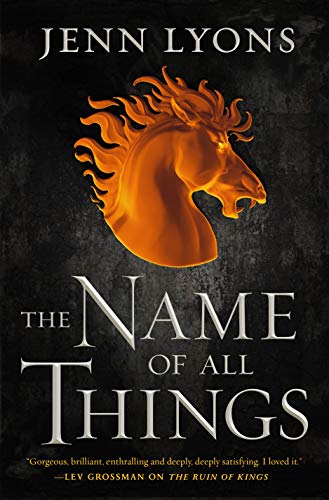 The Name of All Things (A Chorus of Dragons, #2) by
The Name of All Things (A Chorus of Dragons, #2) by 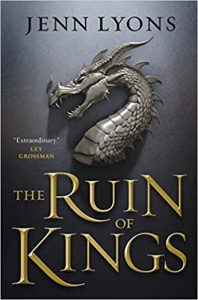 This series began early in 2019 with
This series began early in 2019 with 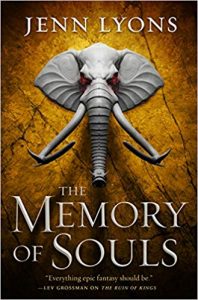 One of the other things that makes this series so mesmerizing is that it is never a simple contest of good vs. evil. Everything in this world is in shades of gray. The gods are not really gods. However, the demons, for the most part, at least so far, seem to really be demonic. But the characters who commit evil acts, like Relos Var and Senera, may have the best of motives. And may still be evil at the same time. Nothing is clear but everything is compelling.
One of the other things that makes this series so mesmerizing is that it is never a simple contest of good vs. evil. Everything in this world is in shades of gray. The gods are not really gods. However, the demons, for the most part, at least so far, seem to really be demonic. But the characters who commit evil acts, like Relos Var and Senera, may have the best of motives. And may still be evil at the same time. Nothing is clear but everything is compelling.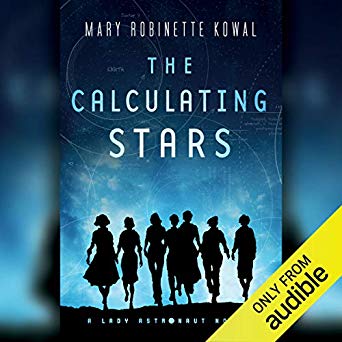 The Calculating Stars (Lady Astronaut, #1) by
The Calculating Stars (Lady Astronaut, #1) by 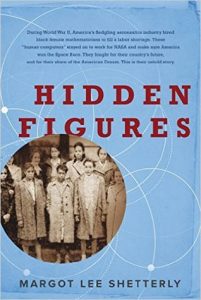 Elma is a computer. In the 1950s, computers were women and not machines, as has been detailed in several recent nonfiction books about the period, notably
Elma is a computer. In the 1950s, computers were women and not machines, as has been detailed in several recent nonfiction books about the period, notably  The way that I was drawn into her story because she represented me in a way that most characters do not gave me a new appreciation for the power of representation in literature and the arts. It made me appreciate the Cuban heritage of Eva Innocente in
The way that I was drawn into her story because she represented me in a way that most characters do not gave me a new appreciation for the power of representation in literature and the arts. It made me appreciate the Cuban heritage of Eva Innocente in 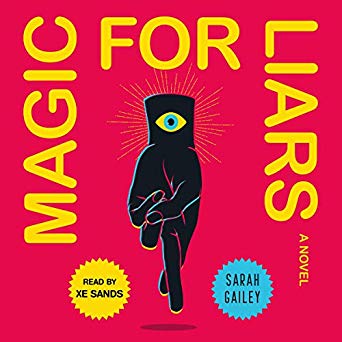 Magic for Liars by
Magic for Liars by 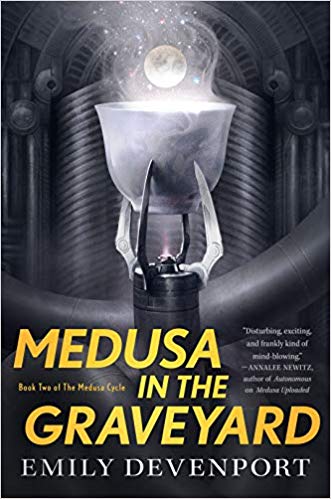 Medusa in the Graveyard (The Medusa Cycle, #2) by
Medusa in the Graveyard (The Medusa Cycle, #2) by 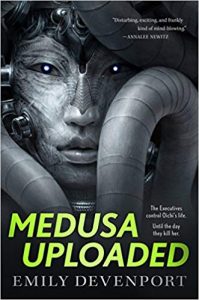 I picked up Medusa in the Graveyard because I absolutely adored the first book in the
I picked up Medusa in the Graveyard because I absolutely adored the first book in the 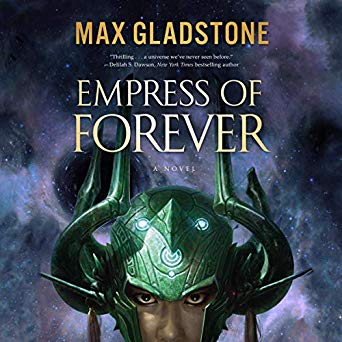 Empress of Forever by
Empress of Forever by 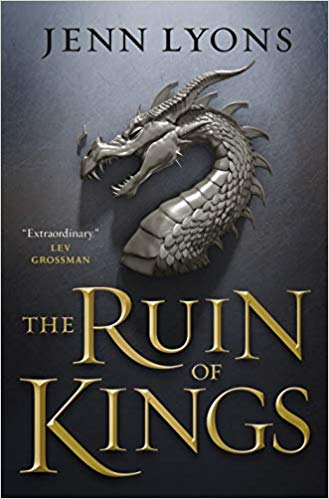 The Ruin of Kings (A Chorus of Dragons, #1) by
The Ruin of Kings (A Chorus of Dragons, #1) by 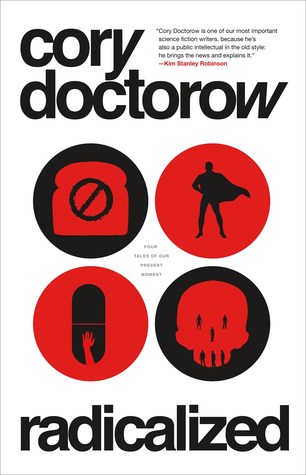 Radicalized by
Radicalized by 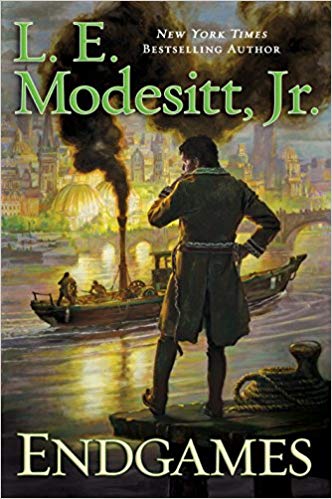 Endgames (Imager Portfolio #12) by
Endgames (Imager Portfolio #12) by 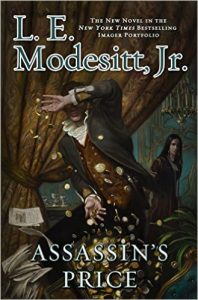 The events in Endgames directly follow the events in the previous book,
The events in Endgames directly follow the events in the previous book, 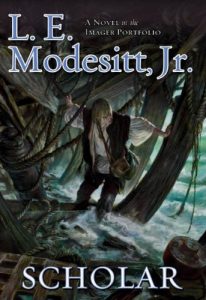 But Endgames is certainly the ending of this middle sequence of the series. Interested readers can begin the
But Endgames is certainly the ending of this middle sequence of the series. Interested readers can begin the